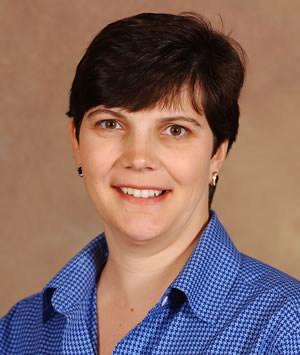Diane Simeone, M.D., director of the Pancreatic Cancer Research Program provides insight for patients looking for a cancer treatment.

The interviewer is Virginia Cravotta, an award-winning journalist. Ms. Cravotta has been Senior Affairs Correspondent for News 12 Long Island, NY, since 1995.
Virginia Cravotta (VC):
A particular concern for individuals diagnosed with pancreatic cancer is whether they have time to research treatment centers and receive second opinions before settling on a course of action.
A particular concern for individuals diagnosed with pancreatic cancer is whether they have time to research treatment centers and receive second opinions before settling on a course of action.
Dr. Diane Simeone (DS):
It is important that a patient who decides to be evaluated and/or treated at a high volume center understand how long it will take to be seen. Typically, being seen within a few weeks is reasonable; longer than that is not. There are times when medical issues need to be dealt with urgently, such as when a patient is experiencing biliary obstruction, significant pain, or difficulty eating with nausea and vomiting. Generally, however, once acute medical issues are addressed, there is a window of time to seek out the best course of action.
VC:
Once someone is diagnosed, what is the best way to select an oncologist and/or treatment center
Once someone is diagnosed, what is the best way to select an oncologist and/or treatment center
DS:
It is important to seek care from doctors or from a center that provides very high quality care and is experienced with the care of pancreatic cancer. This is definitely a cancer requiring a multi-disciplinary treatment approach. "Multi-disciplinary" refers to relying on the input of gastroenterologists, surgeons, medical oncologists, radiation oncologists, as well as allied health care professionals including oncology nurses and social workers.
Generally, patients ask their primary care doctor for a referral to someone who they know is an expert in the care of pancreatic cancer. Alternatively, your doctor may refer you to a center that has expertise in treating pancreatic cancer. There are sources of information available to help patients sort this out if your doctor isn't familiar with the best oncologist or center with expertise in pancreatic cancer. One way to begin is to find out if there is a National Cancer Institute (NCI) – Designated Cancer Center in your area. NCI-Designated Cancer Centers are considered centers of excellence, which have received recognition for their expertise. Additionally, there are resources to help you find physicians experienced in the care of pancreatic cancer.
It's important to know that the doctor is board certified in their specialty; the volume of pancreatic cancer patients they've treated; how many pancreatic cancer patients are seen at their center; and whether there is a team that works together to make optimal decisions about what treatment is going to be best and the timing of treatment.
You may need to meet with more than one doctor. In fact, the NCI recommends getting a second opinion to compare and contrast recommendations and get a sense of whether your doctor's recommendations are supported by others.
VC:
Tell us more about NCI-Designated Cancer Centers and the advantages of being treated at a high-volume cancer center. How might a patient check the quality-of-care offered at various cancer treatment centers?
Tell us more about NCI-Designated Cancer Centers and the advantages of being treated at a high-volume cancer center. How might a patient check the quality-of-care offered at various cancer treatment centers?
DS:
Patients are best served by being seen in high-volume centers, which offer a multi-disciplinary team of physicians and allied support services. Additionally, these centers offer multi-disciplinary tumor board meetings, where you will be evaluated by doctors representing all of the different specialties who all "weigh-in" and determine your optimal treatment plan. There are numerous components to think about when it comes to best quality of care at treatment centers.
With regard to surgery, it's particularly important to identify a surgeon with expertise in pancreatic surgery. There is data to show that the number of pancreatic resections your surgeon performs annually is an excellent predictor of surgical outcomes. Probably the biggest difference in mortality among high and low volume surgeons is due to the complexity of pancreatic surgery. Therefore, it's a good idea to ask your surgeon how many pancreatic resections he/she perform annually. At a minimum, you want them to perform 15 to 20 pancreatic resections per year. You also should ask your surgeon about their complication rates and, in particular, their 30-day operative mortality rate.
Continue reading this article at: http://www.cancer.med.umich.edu/living/choosing-a-physician2.shtml
No comments:
Post a Comment